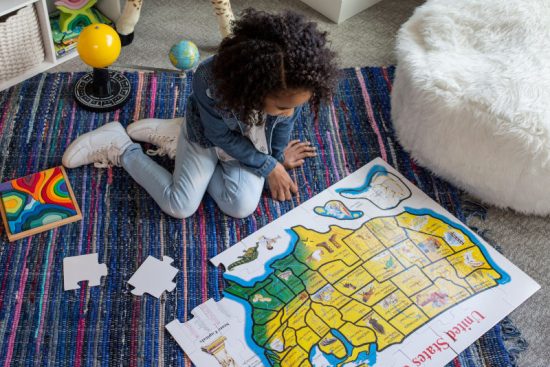
Parenting after divorce can feel like navigating uncharted waters. The shift from a united front to co-parenting presents unique challenges, but it also opens up opportunities for growth and new dynamics. Understanding how to effectively co-parent is crucial for the well-being of the children involved.
Parenting After Divorce
Effective co-parenting after a divorce requires addressing various emotional and legal challenges. To ensure a smooth transition, parents must prioritize their children’s well-being by maintaining open communication and a supportive environment.
The Emotional Landscape
 Navigating the emotional landscape post-divorce can be complex. Children often experience feelings of confusion, sadness, or guilt. Parents should reassure their children that both parents still love them and that the divorce isn’t their fault. Providing a stable environment and consistent routines can alleviate some of these emotional stresses. Professional counseling may also help children process their emotions, offering them a safe space to express their feelings.
Navigating the emotional landscape post-divorce can be complex. Children often experience feelings of confusion, sadness, or guilt. Parents should reassure their children that both parents still love them and that the divorce isn’t their fault. Providing a stable environment and consistent routines can alleviate some of these emotional stresses. Professional counseling may also help children process their emotions, offering them a safe space to express their feelings.
Legal Implications and Co-parenting
Co-parenting after divorce often involves understanding legal implications. These include custody arrangements, visitation schedules, and child support obligations. Parents must comply with court orders to avoid conflicts and ensure legal guidelines are met. Regularly evaluating and adjusting custody plans as children grow can address their evolving needs. Collaborative communication between co-parents enhances cooperation and reduces legal conflicts, providing a steady framework for the children’s stability.
Effective Communication Strategies
Effective communication between co-parents post-divorce ensures a stable environment for their children. Consistent, respectful interactions ease the transition and promote positive development.
Establishing a Co-parenting Communication Plan
Creating a co-parenting communication plan sets clear expectations. Both parents agree on preferred communication methods (e.g., phone, email) and frequency. This plan minimizes misunderstandings and maintains a consistent dialogue. Key elements can include decision-making protocols for important matters like health and education. Regularly scheduled check-ins can address any ongoing concerns or adjustments needed.
Example in the plan:
-
Bi-weekly phone calls to discuss the child’s progress and any upcoming events.
-
A shared calendar app to track the child’s schedule.
Tools and Resources for Better Interaction
 Utilizing tools and resources supports clear and consistent communication. Co-parenting apps, such as OurFamilyWizard and Cozi, offer shared calendars and secure messaging. These apps help co-parents stay organized and informed.
Utilizing tools and resources supports clear and consistent communication. Co-parenting apps, such as OurFamilyWizard and Cozi, offer shared calendars and secure messaging. These apps help co-parents stay organized and informed.
Recommended tools:
-
OurFamilyWizard: Offers shared expenses tracking, document storage, and messaging.
-
Cozi: Provides a shared family calendar, to-do lists, and meal planning.
Setting Boundaries and Norms
Establishing Household Rules
Each parent should agree on key household rules, such as bedtime routines, screen time limits, and homework schedules. Ensuring these rules align in both homes minimizes confusion for the children.
Respecting Privacy
Respecting each other’s privacy is crucial. Neither parent should intrude on personal communications without a valid reason. This means no reading of messages or emails between the child and the other parent unless necessary.
Setting Communication Norms
Parents need clear guidelines on when and how to communicate, especially regarding decisions affecting the child. Regular check-ins help address concerns early and maintain a cooperative dynamic.
Creating Safe Environments
 Both homes must be safe and nurturing. Children should feel comfortable discussing their feelings without fear of choosing sides. Providing reassurance and emotional support remains paramount.
Both homes must be safe and nurturing. Children should feel comfortable discussing their feelings without fear of choosing sides. Providing reassurance and emotional support remains paramount.
Coordination of social and extracurricular activities should be seamless. Keeping an updated calendar of the child’s events avoids scheduling conflicts and ensures both parents are involved.
Handling Discipline Consistently
Discipline should be consistent across both households. Parents must discuss and agree on appropriate disciplinary measures to avoid confusion and ensure children understand the consequences of their actions.
Nurturing Your Child’s Welfare
Parenting after divorce requires dedication and a commitment to your child’s well-being. By focusing on effective co-parenting, establishing boundaries, and maintaining consistent rules, parents can create a stable and nurturing environment. Respecting each other’s privacy and setting clear communication norms are essential for managing this transition smoothly. Ultimately, the goal is to provide security and predictability, ensuring children feel loved and supported as they adapt to new family dynamics. Through cooperation and clear communication, co-parents can foster a positive atmosphere that promotes their child’s emotional and psychological health.




